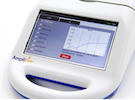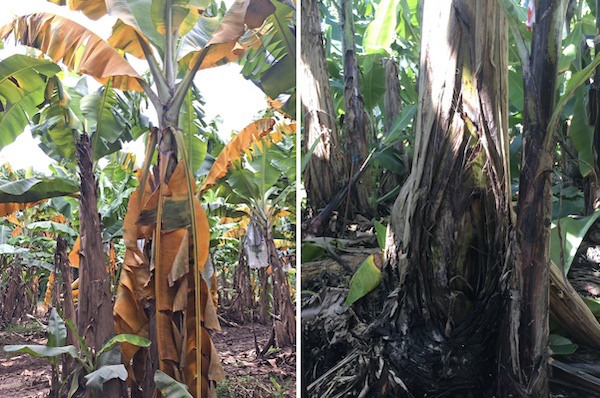Agdia, Inc. announced the commercialization of a rapid DNA-based assay, on their AmplifyRP® XRT platform, for the detection and identification of Fusarium odoratissimum Tropical Race 4, formerly known as Fusarium oxysporum forma specialis cubense Tropical Race 4.
 Agdia’s new AmplifyRP® XRT assay for detection of F. odoratissimum TR4 is based on recombinase polymerase amplification (RPA). This technology promotes the rapid amplification and detection of nucleic acid targets, DNA or RNA, while maintaining a single operating temperature of 39o– 42o C. The AmplifyRP® XRT products achieve target sensitivity and specificity comparable to PCR, while having clear advantages over the lab-based technology. AmplifyRP® XRT products do not require a nucleic acid purification step; crude sample extracts are prepared using a simple extraction buffer and tested directly. This makes the testing process simple and saves the end-user valuable time. Moreover, this facilitates the implementation of this technology at remote locations with limited resources.
Agdia’s new AmplifyRP® XRT assay for detection of F. odoratissimum TR4 is based on recombinase polymerase amplification (RPA). This technology promotes the rapid amplification and detection of nucleic acid targets, DNA or RNA, while maintaining a single operating temperature of 39o– 42o C. The AmplifyRP® XRT products achieve target sensitivity and specificity comparable to PCR, while having clear advantages over the lab-based technology. AmplifyRP® XRT products do not require a nucleic acid purification step; crude sample extracts are prepared using a simple extraction buffer and tested directly. This makes the testing process simple and saves the end-user valuable time. Moreover, this facilitates the implementation of this technology at remote locations with limited resources.
When paired with Agdia’s AmpliFire® isothermal fluorometer, the XRT system is a rapid, user-friendly tool that can be implemented in the field or the lab by personnel with limited experience in molecular diagnostics.
To perform the assay, the end-user initially extracts their sample using a mesh extraction bag and buffer. After the sample has been extracted, a small volume of sample is added to a solution that is used to rehydrate a lyophilized reaction pellet. Once the reaction pellet has been rehydrated, it is added to a portable fluorometer and heated at 42o C for 20 minutes. During this time, the target DNA, if present, will be amplified and produce a fluorescent signal that is detected by the fluorometer in real time and visualized as an amplification curve. Moreover, based on the specific parameters of this assay, the end-user will be provided a (+) or (–) indication by the fluorometer, eliminating interpretation error.

Agdia states their assay is specific to F. odoratissimum TR4 and was screened against a diverse collection of confirmed isolates from multiple vegetative compatibility groups, showing 100% accuracy in detection of true positives. Moreover, it exhibited no cross-reactivity with races 1, 2, 3 or Sub-Tropical race 4 (STR4). The specificity panel also included several species of Fusarium not associated with vascular wilt and additional soil-borne pathogens, such as Rhizoctonia, Phytophthora and Pythium. According to Agdia, their new assay is as sensitive as the published qPCR assay and exhibits higher sensitivity than the published conventional PCR assay against which it was tested. This assay contains an internal control and was developed to be used with root, rhizome, stem, leaf tissue or fungal cultures.
AmplifyRP® and AmpliFire® are registered trademarks of Agdia, Inc.
 For more information:
For more information:
Robert Emmitt
Agdia, Inc.
Email: robert.emmitt@agdia.com
www.agdia.com
